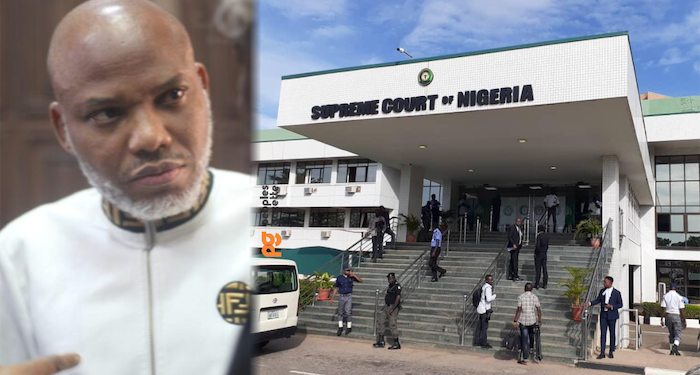In a landmark legal development, Nigeria’s Supreme Court has upheld the trial of Nnamdi Kanu, the leader of the Indigenous People of Biafra (IPOB), despite acknowledging a series of government illegalities. The apex court’s ruling comes after the Court of Appeal had ordered Kanu’s release, highlighting the complexities surrounding his case.
Legal Complexities in Nnamdi Kanu Trial
Justice Emmanuel Agim, delivering the judgment, emphasized that Nigeria’s legal system has not reached a stage where a trial can be stopped due to illegality by the prosecution. This decision, while condemning government actions, signifies the need for legislative measures to address such legal complexities in the country.
Background and Controversies
Kanu’s legal battle began in 2015 when he was first arrested for leading a separatist campaign in Nigeria’s South-east region, using Radio Biafra to allegedly incite violence. The recent Supreme Court ruling means that Kanu will continue facing the remaining seven charges related to terrorism and treason at the Federal High Court.
Despite the government’s military raid on Kanu’s home and his subsequent extradition from Kenya, the Supreme Court maintained that these actions, while condemned, do not warrant halting the trial. The court suggested that legislative intervention is necessary for addressing such matters, advising Kanu to seek redress through a civil suit against the infringement of fundamental rights.
Implications and Legal Debates
This legal saga has sparked debates about human rights violations, legal procedures, and the rule of law in Nigeria. As the case continues to unfold, it sheds light on the delicate balance between addressing separatist movements and upholding individual rights within the Nigerian legal framework. The Supreme Court’s decision underlines the importance of legislative measures to navigate complex legal scenarios, shaping the discourse around the rule of law in the country.


